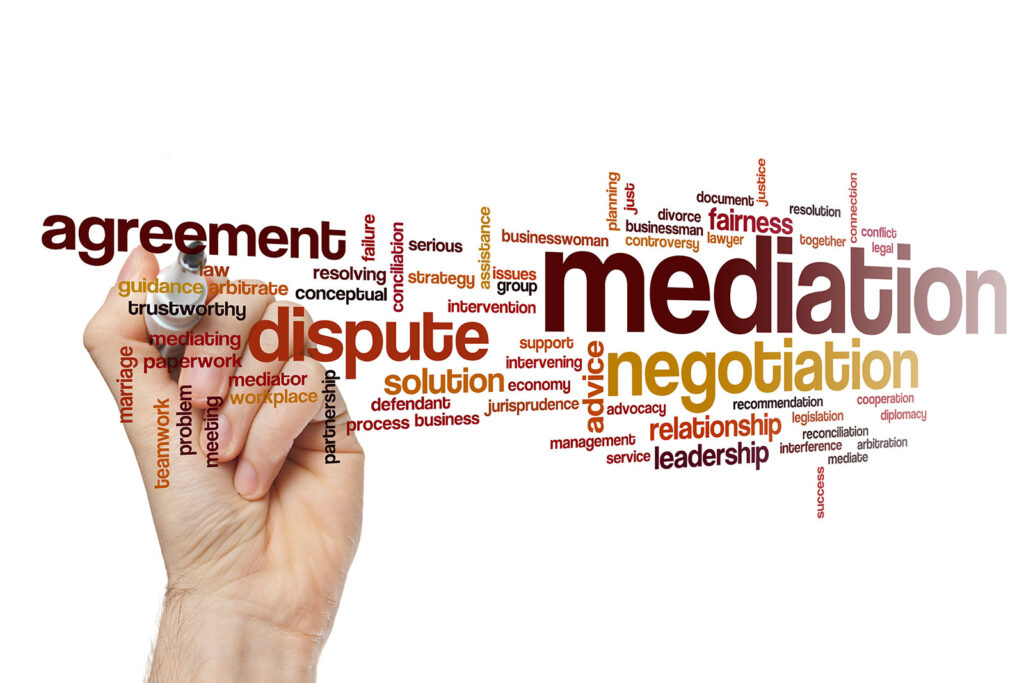
From Conflict to Collaboration: Reshaping Local Government Dynamics through Dispute Resolution
This article first appeared in the March 2024 Florida City and County Management Association (FCCMA) Newsletter
In local government, disputes involving noise and other nuisance complaints, zoning, development, service provision, and public space, to name a few, are as common as they are diverse. Typically, addressing these issues involves resorting to legal and regulatory measures, which can be punitive and expensive. However, adopting a collaborative approach through dispute resolution presents local governments with an alternative tool. A recent Harvard Business Review article highlighted that conflict resolution skills are among organizations’ topmost critical trends for 2024. This insight is particularly relevant to local government disputes. City and county governments have the option to advocate for communication and understanding over authoritative intervention. This approach conserves local government resources and fosters a more balanced community dynamic.
Dispute resolution practices, such as mediation, offer an alternative to the often adversarial and resource-intensive law and code enforcement processes. In mediation, a neutral third party assists the disputing parties in reaching a mutually acceptable solution. This method empowers those involved to voice their concerns and work together to reach a resolution that respects all parties’ interests. This relationship-building leads to better solutions for the parties moving forward.
Adopting such practices in local government disputes has many benefits. First, it significantly reduces the strain on local government resources. Legal processes are not only time-consuming but also financially draining. In addition, there often aren’t enough officers or local government officials to address all the issues. By diverting suitable cases to dispute resolution, local governments can allocate their resources more efficiently, focusing on projects that enhance community well-being and infrastructure.
Second, dispute resolution tends to yield more satisfactory outcomes for all involved. Solutions crafted by the disputants are more likely to be respected and adhered to than decisions imposed by a third party. This sense of ownership and mutual respect can transform a potentially divisive issue into an opportunity to build community and foster stronger relationships.
Moreover, dispute-resolution practices contribute to a more peaceful community atmosphere. By encouraging dialogue and understanding, these methods help diffuse tensions and prevent conflict escalation. In the long run, this can lead to a culture of constructive communication and problem-solving, reducing the frequency and severity of disputes.
However, implementing these practices can be challenging. It requires a shift in mindset from both local government officials and the community. Local government officials play an important role in advocating for and facilitating dispute-resolution processes. Their active participation is critical to ensuring that community members are aware of and have access to these options. On the other hand, community members must be open to dialogue and compromise, sometimes setting aside immediate personal interests for the greater good.
In conclusion, incorporating dispute resolution practices into handling local government disputes offers a promising path toward more efficient use of resources, more satisfactory outcomes, and a more harmonious community. The potential benefits of these practices are significant. They include resolving conflicts constructively and collaboratively, reducing the strain on local government resources and fostering a more peaceful community atmosphere. While it demands a shift in perspective and a commitment to collaboration, the potential rewards far outweigh the challenges. As local governments explore and adopt these practices, they pave the way for a future where dialogue triumphs over discord and community well-being is at the heart of conflict resolution.
To find out more, please click here for other articles about addressing conflict in your organization and community.
Sarah is a Florida Supreme Court-certified Circuit Civil and County Mediator. She served in city government for 25 years and continues to be active in the local government profession through her FCCMA committee participation and as a founding board member of Florida Women Leading Government (FWLG) and the Nighttime Economy Culture and Policy (NITECAP) Alliance.
